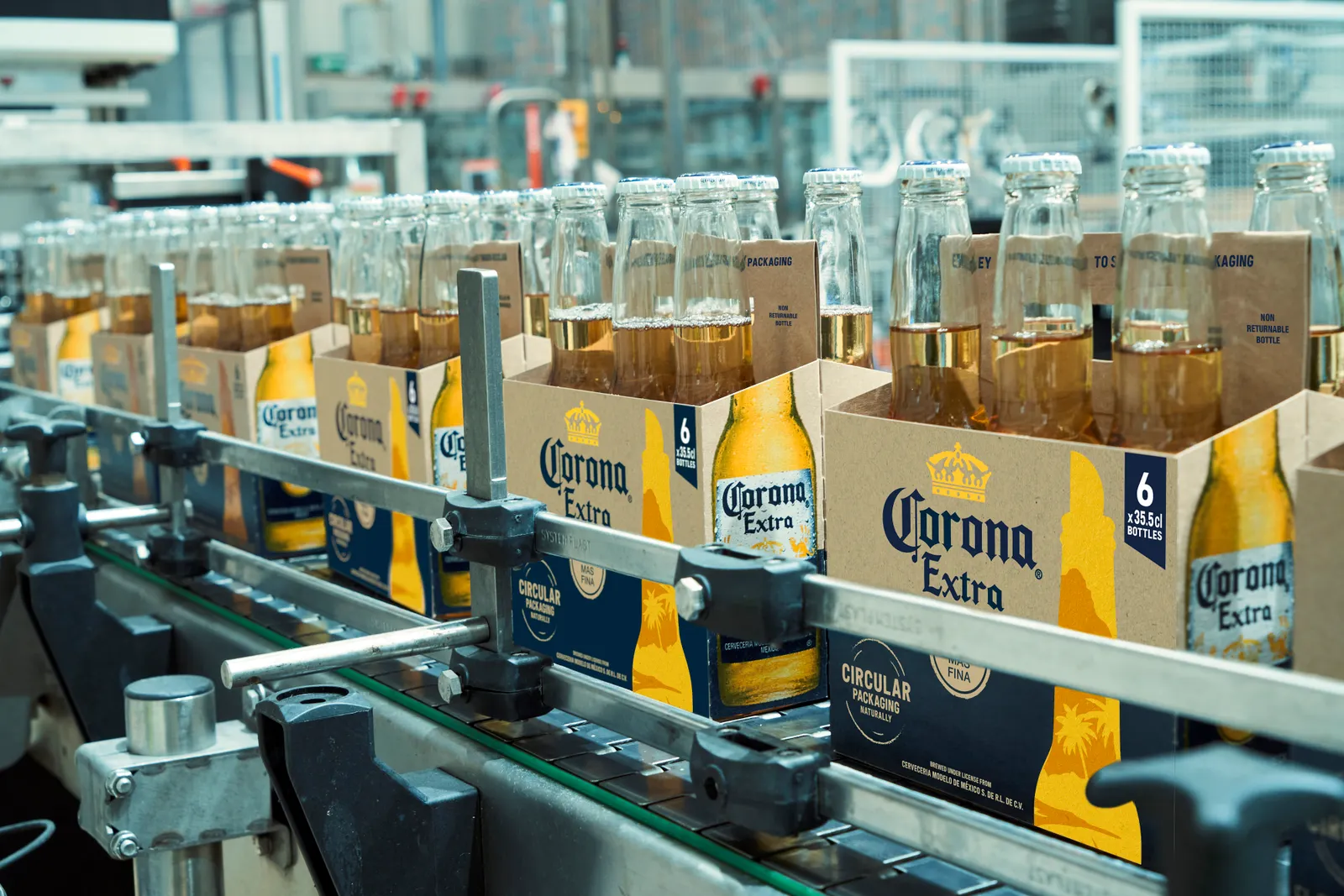Escalating trade war heightens risks for alcohol industry
As alcohol remains caught in the middle of an intensifying global trade war, industry experts said U.S.-based companies have a lot to lose.
Last week, Trump threatened 200% tariffs on imports like wine and Champagne from Europe if the European Union does not pull back retaliatory duties on American whiskey. Meanwhile, 25% threatened tariffs on Canada and Mexico have sparked uncertainty and set off boycotts of U.S.-affiliated products.
Tariffs and retaliatory backlash not only limit the market for U.S. spirits producers abroad, but also present challenges to American companies whose portfolios depend on imported brews.
Spiros Malandrakis, head alcohol researcher at Euromonitor, said the tariff war with Europe fundamentally damages the market for American-made alcoholic beverages like Kentucky bourbon, which have grown a presence in the continent over the past several decades.
“The average consumer is not thinking on a quadruple layered chessboard. They are emotional beings,” Malandrakis said. “They have many more reasons to now opt for a Scotch whisky or an Irish whiskey.”
The sales of U.S. alcohol brands in Europe could quickly dip if tariffs are applied, Malandrakis said, pointing to the swiftness of the boycott on products like whiskey in Canada after Trump applied tariffs to the country earlier this month. The market for whiskey exports plummeted during Trump’s first term, during the 2018 to 2021 period, after he applied tariffs on them to the EU, but spiked by almost 60% since those tariffs were lifted, according to the Distilled Spirits Council.
According to Malandrakis, the actions of France and Italy’s leaders will be of greater importance to Trump’s negotiations on tariffs with Europe compared to other EU politicians. France and Italy export more alcohol like Champagne and wine compared to countries like Germany and Greece. Earlier this week, French Prime Minister Francois Bayrou said the EU made a mistake targeting American whiskey, fearing the impact on France’s cognac market.
Tariffs or not, backlash against the Trump administration abroad has pushed consumers to take a stand against American companies, Malandrakis said, pointing to tumbling sales of Tesla cars in Europe amid Elon Musk’s polarizing role in U.S. policy.
“Even if [tariffs] are reversed, you cannot reverse consumer opinions and perceptions with executive order,” Malandrakis said. “If you look at European poll numbers, the vast majority of Europeans, regardless of political affiliation, are horrified about this and feel extremely strongly about it.”
The CEO of Jack Daniel’s maker Brown-Forman told investors Canadian retailers removing its products from shelves altogether is “worse than a tariff” and said it is planning for the potential impact of similar moves from EU countries, which make up a much larger percentage of its sales.

Corona Extra beer in a manufacturing facility.
Courtesy of AB InBev
Tariffs create a system of winners and losers
Mitigation actions of beverage companies looking to combat the potential negative impacts of tariffs will vary based on alcohol type, according to Ed Brown, a partner at Burr & Forman which specializes in beverage industry clients. Wine and spirits companies, for example, may have already stocked up their warehouses with “tremendous amounts” of product ahead of an incoming tariff because of their shelf life, whereas beer sellers can’t stock up for an extended period of time.
Big beer brands with a high amount of imported goods in their portfolio stand to potentially lose the most from Trump’s tariffs strategy. The reliance on Mexican imports for Constellation Brands puts them at a “tremendous amount of risk,” if consumer prices on products like Modelo and Corona are higher than their American-made counterparts.
Brown believes tariffs alone will not deter consumers from drinking alcohol. He pointed to data showing that drinkers shift to lower-priced beverages during times of recession. But this dynamic could harm liquor stores less than CPG companies.
“The retailer probably has the least amount of risk, because if someone doesn’t buy the Modelo, they’ll buy the Bud Light,” Brown said, adding that Constellation would still stand to lose in this scenario. “There may be some impact from consumers going down market slightly to find a substitute.”
Source link



:max_bytes(150000):strip_icc()/marseilles-rhum-FT-RECIPE0325-d4702a96f93b4fc380317aba600ee03b.jpeg)


:max_bytes(150000):strip_icc()/fw-roundup-target-coastal-trend-collection-tout-1037d3b769a74c48a7b8f67809ba2d11.jpg)